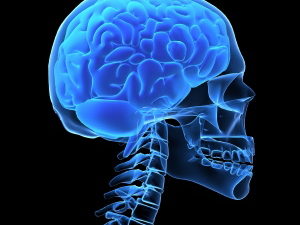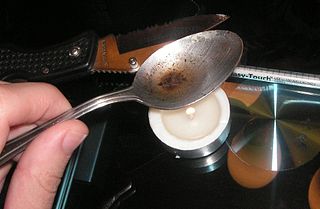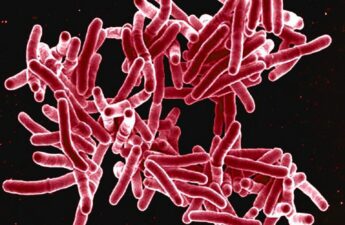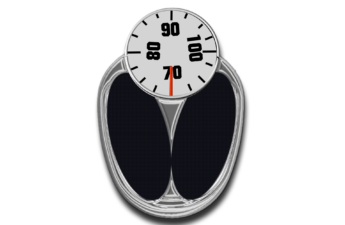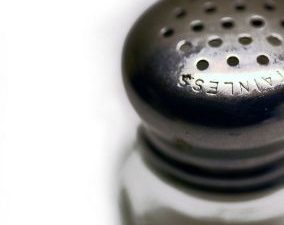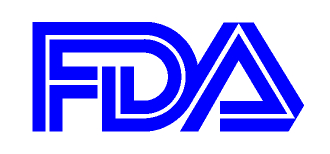Exercise can significantly reduce the risk of developing conditions that affect the heart, such as high blood pressure, high cholesterol and obesity. But large amounts of exercise throughout life may also harm the heart, leading to the development of a condition called athletic heart.
Women may realize health benefits of regular exercise more than men
Even when women and men get the same amount of physical activity, the risk of premature death is lower for women, NIH study finds
What is ‘fried rice syndrome’? A microbiologist explains this type of food poisoning – and how to avoid it
Enzo Palombo, Swinburne University of Technology A condition dubbed “fried rice syndrome” has caused some panic online in recent days, after the case of a 20-year-old who died in 2008 was resurfaced on TikTok. “Fried rice syndrome” refers to food…
Millions of older people don’t get enough nutrients – how to spot it and what to do about it
Weight loss in older adults is a key sign of malnutrition that needs to be addressed – but it can be easily missed, especially when many older adults associate the idea of thinness with good health. But clothing that’s too loose or a watchstrap that floats on the wrist are all warning signs of undernourishment.
Several companies are testing brain implants – why is there so much attention swirling around Neuralink? Two professors unpack the ethical issues
Putting a computer inside someone’s brain used to feel like the edge of science fiction. Today, it’s a reality. Academic and commercial groups are testing “brain-computer interface” devices to enable people with disabilities to function more independently. Two two scholars at the University of Washington School of Medicine – Nancy Jecker, a bioethicst, and Andrew Ko, a neurosurgeon who implants brain chip devices – discuss the ethics of this new horizon in neuroscience.
Running or yoga can help beat depression, research shows – even if exercise is the last thing you feel like
We found walking, running, strength training, yoga and mixed aerobic exercise were about as effective as cognitive behaviour therapy – one of the gold-standard treatments for depression.
Oregon’s Drug Decriminalization Aimed to Make Cops a Gateway to Rehab, Not Jail. State Leaders Failed to Make It Work.
Ballot Measure 110, approved by voters in 2020, created a new role for law enforcement in Oregon. While there’s evidence people living with addiction in the state are increasingly finding their way into treatment, the failure to turn police encounters into successful on-ramps to rehab has been cited by critics as prime evidence the measure isn’t working. Oregon lawmakers, noting an ongoing rise in overdose deaths, are now looking to restore jail time for drug possession.
But Oregon’s political leaders themselves played central roles in failing to deliver on the potential for law enforcement to connect people with lifesaving services under the new measure, documents and interviews with a wide array of people involved in the system indicate.
It’s time for a heart-to-heart about women’s cardiovascular health, unique risk factors and symptoms
Although cardiovascular disease is often considered a disease of men, women are more likely to die from a heart attack when compared with men. This fact often surprises women and even their health-care providers. Many women are not aware that heart disease is a significant health threat to them, but the reality is that five times as many women die from heart disease as breast cancer.
Governments can erase your medical debt for pennies on the dollar — and some are
Medical debt is the leading cause of bankruptcies in the United States, and more than 2 in 5 American adults have some. Some states and cities will use federal money to forgive millions of dollars of their residents’ medical debt.
Tuberculosis cases rise, but public health agencies say they lack the resources to keep up
People think tuberculosis is gone. … It’s here and growing.
How much weight do you actually need to lose? It might be a lot less than you think
Losing just 5–10% of our body weight – between 6 (~13 lb.)and 12kg (~26 lb.) for someone weighing 120kg (~264 lb.) – can significantly improve our health in four key ways.
Dietary supplements and protein powders fall under a ‘wild west’ of unregulated products that necessitate caveats and caution
Under a 1994 law, dietary supplements are classified as food, not as drugs. This means dietary supplements are not required to prove efficacy, unlike drugs. Regulators also don’t take action on a product until it is shown to cause harm.
Telehealth makes timely abortions possible for many, research shows
Access to telehealth abortion care can determine whether a person can obtain an abortion in the United States. For young people and those living on low incomes, telehealth makes a critical difference in getting timely abortion care.
This salt alternative could help reduce blood pressure. So why are so few people using it?
It’s hard for people to change the way they cook, season their food differently, pick low-salt foods off the supermarket shelves and accept a less salty taste.
Now there is a simple and effective solution: potassium-enriched salt. It can be used just like regular salt and most people don’t notice any important difference in taste.
What the FDA Does Approve and What It Doesn’t
Is It Really “FDA Approved”? Maybe you’ve seen these words on a company’s website or in a commercial promoting a product or treatment. Here are some facts about products that are, and aren’t, FDA approved.




